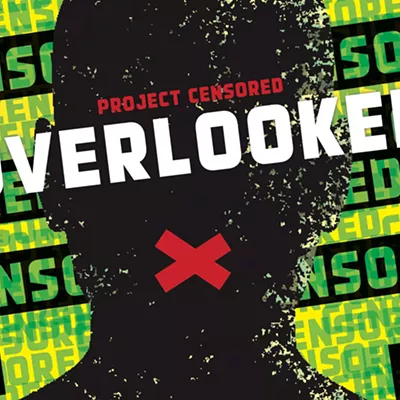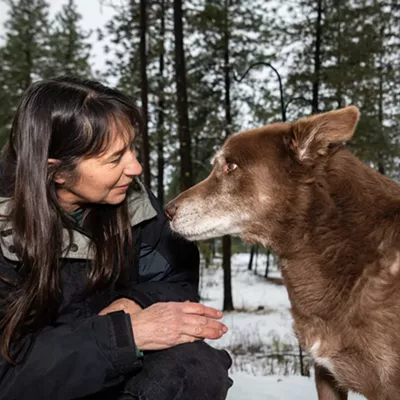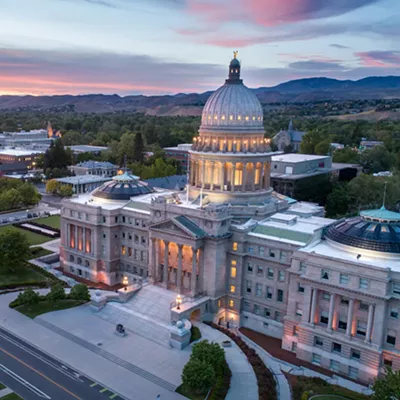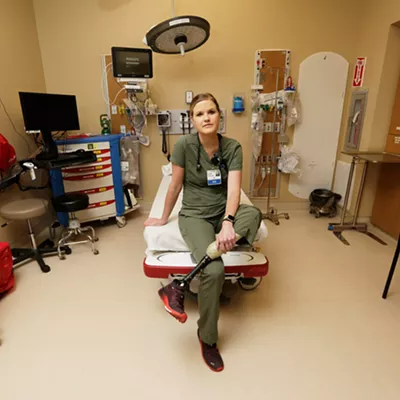
In November, the Idaho State Board of Education met to discuss funding for student housing and three draft resolutions focused on governance, freedom of expression, and diversity, equity, and inclusion (DEI) policies.
While the board moved quickly through its agenda, most of the meeting was spent going over the DEI resolution, which would end diversity policies and diversity centers at Idaho's public universities and colleges.
The resolution would require institutions to maintain equal opportunity for all students regardless of their personal identity. It would prohibit universities from maintaining offices, policies or procedures dedicated to diversity, equity and inclusion activities.
Additionally, it would affirm the board's stance that Idaho law prohibits diversity statements in hiring and admissions decisions in higher education, in alignment with state Senate Bill 1274, which Idaho Gov. Brad Little signed into law in March.
Universities would need to ensure that student success centers are dedicated to all students. (Title IX protections already prevent higher education organizations or clubs supporting specific groups from discriminating against other students.)
The resolution would impact the University of Idaho's Black/African Cultural Center, LGBTQA office, Women's Center, and Office of Multicultural Affairs. While it would also close similar offices at all public higher education institutions in the state, the resolution specifically mentions those with four-year programs, including U of I, Boise State University, Idaho State University and Lewis-Clark State College.
The resolution would also prohibit institutions from requiring students or employees to state their gender identity or preferred pronouns. No public universities in Idaho currently require people to do so.
At the Nov. 21 meeting, the board's Executive Director Joshua Whitworth said the three resolutions are intended to dispel a focus on things that are not part of Idaho's core mission in education. He said the focus is on the success of the total student population.
"These resolutions are not — and I want to make this very clear — they're not about addressing one particular body of students," Whitworth told State Education Board members. "They're really about trying to set the expectation that we are holistically looking at students as a whole body and how we move those students toward successful outcomes."
Education Board member Kurt Liebich, who also chairs the board's planning, policy and governmental affairs committee, shared concerns about the resolution. He said students enter university at different starting points and need academic support from faculty and peers.
Liebich said it is essential to find a close group of friends with whom to make the academic journey. He emphasized to the board that Native American, veteran and first-generation support services play a critical role in students' success and said he doesn't want to see programs go away that would benefit academic success. Liebich suggested that university presidents vet the resolution's language.
Last week, the Idaho Legislature's diversity, equity and inclusion task force met to discuss the impacts of affirmative action decisions made by the U.S. Supreme Court, DEI laws created by Utah and higher education accreditation.
"DEI can be a boogey person to many or be a precise thing," Whitworth said at the task force meeting. "The ideology is kind of this movement that focuses and forces a focus on diversity that says, 'You must accept this,' versus a diversity that says we have different opinions."
The Idaho State Board of Education is expected to vote on the DEI resolution at its Dec. 18 meeting.
The University of Idaho has begun its transition to align with the resolution, and students are concerned about diversity centers on campus closing and university staff potentially losing their jobs.
Jodi Walker, U of I's senior director of communications, tells the Inlander via email that the university is aware of the DEI resolution and has drafted a plan to make changes should the board approve it.
"However, the [State Education] Board did not vote on the resolution and is asking for further conversations with university leadership," Walker writes. "Meanwhile, the university will continue working with the board to ensure our plans meet its intent."
Alia Schmitt, a fourth-year student at U of I, says she is concerned, frustrated and worried for those who rely on diversity-focused programs and services. She is an administrative assistant for the multicultural umbrella organization UNITY, which is supervised by the university's Office of Multicultural Affairs.
Schmitt says the rhetoric around the decision is worrisome. She is a diversity scholarship recipient who identifies as white but says she has never felt segregated from any organizations or that she couldn't access resources because she didn't identify with a specific population. She says the resolution and new Idaho law are blatantly discriminatory.
When UNITY and students learned about the DEI resolution, Schmitt's peers and other organizations held an informational meeting with U of I Dean of Students Blaine Eckles and Chief Diversity Officer Yolanda Bisbee. The meeting was followed by a march to show solidarity with the centers that could be closing.
Schmitt says the members of university leadership explained that U of I is not responsible for the decisions happening at the state level. She says students were told that the university is actively preparing for the resolution to pass in order to prevent university staff at these centers from being laid off suddenly, and is working to find new roles for them.
"They're making sure that staff are going to other places in the university that fit what their job description was," Schmitt says. "So I think they've been taking a lot of action to protect those jobs of the people and still giving them jobs that they resonate with."
Since the Nov. 21 education board meeting, Schmitt has spoken to mentors and advocates who work in the diversity centers.
"From talking with the staff, their main assurance that they've been having is, 'I'm still going to be at this university, I will still be able to give you the support; it's just not going to be with my office now,'" Schmitt says.
On Dec. 2, Whitworth presented the draft diversity, equity and inclusion resolution to the Legislature's DEI task force.
The task force consists of eight lawmakers, including seven Republicans and state Sen. Melissa Wintrow as the sole Democrat. Wintrow has more than 30 years of experience in higher education, including as the first director of Boise State's Women's Center.
Wintrow criticized Whitworth's resolution and asked him to define DEI ideology, saying that no one can clearly define what it means or how it's being weaponized at universities in Idaho, as Whitworth has suggested.
"This ideology you're talking about is a myth and mystery to me," Wintrow said. "It's generated out of political agendas, but what is happening at our campuses here in Idaho is reflected in the over 50 emails I received in two days."
The emails came from students and alumni who had benefited from diversity centers. One alumna emailed Wintrow saying, "I don't think I would have succeeded in earning my B.A. and teaching certificate without the help and encouragement of the Women's Center in particular."
A Moscow resident wrote about how partisan politics have already created problems in higher education.
"We saw what happened when divisive politics impacted North Idaho College," the Moscow resident wrote. "Don't do this to our flagship university."
Wintrow tells the Inlander that diversity has always been a positive in higher education. Diversity centers provide resources to all and don't deny access because someone doesn't have a certain identity. She says she knows male students who benefited from services at the Boise State Women's Center when she was director.
"Two men came to the center who had been raped — and they'd been raped by other men — they weren't going to go somewhere else. They knew this was a safe place to come," Wintrow says. "Thank God I was there to help them, because I felt for them, the shame they felt, the degradation, the demasculinization in a society that values masculinity."
Through the domestic and sexual violence services at the Women's Center, Wintrow was able to provide the men with counseling and resources to help them with the impacts of the violence they experienced.
Wintrow hopes that her colleagues will speak with students and faculty to learn more about how the diversity programs help everyone, and will put aside the misinformation and come together to find a path forward.
"I just want us to put down the misinformation fears and walk to the center and figure out how to live together and find harmony, where everybody has equitable opportunities for that success to thrive," Wintrow says. ♦




















